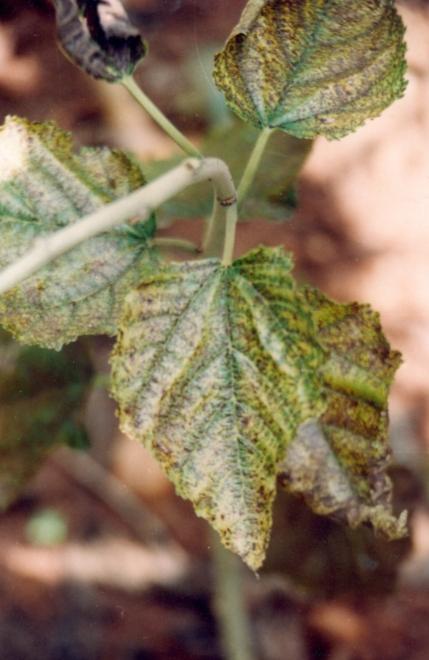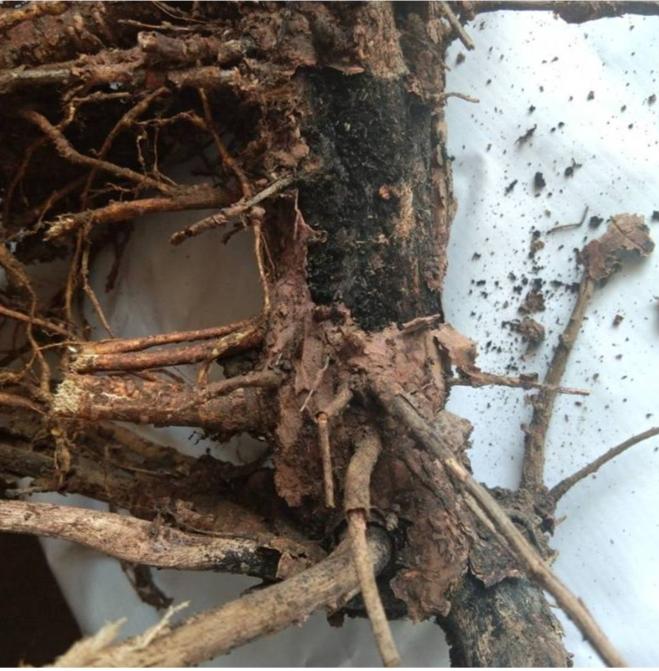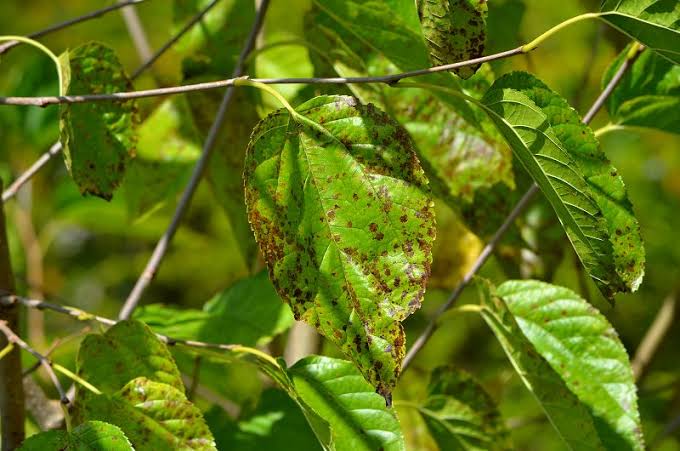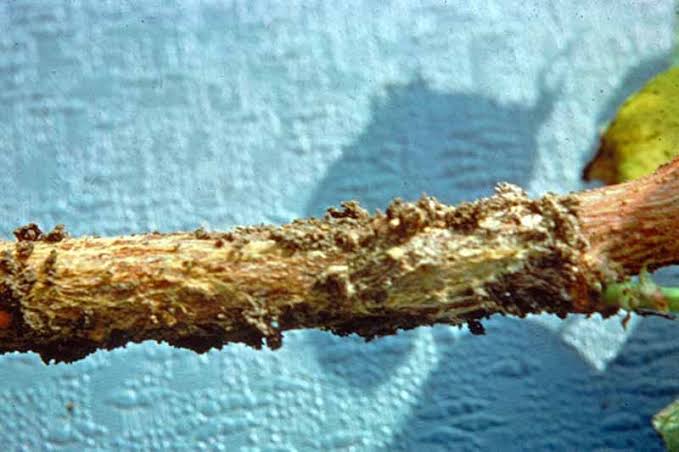African Mulberry
African mulberry trees, 20-40 feet tall in Zones 9-11, grow rapidly in well-drained soil and full sun. Known for their large and edible fruits, African mulberries are enjoyed fresh or in jams.
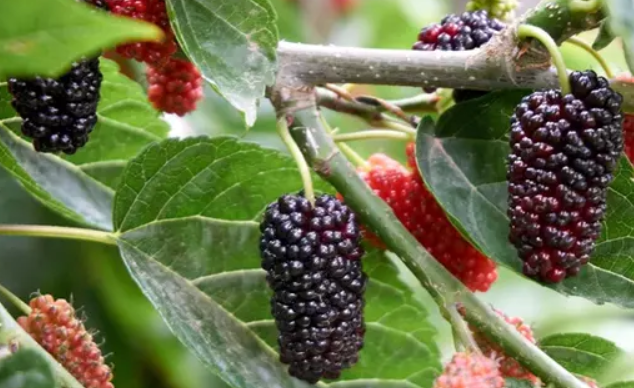
Habit
Tree
Height
20-50 ft
Growth
Fast
Soil
Well Drained
Shade
Full Sun
Moisture
Moderate
Edible
Yes
Medicinal
Yes
Origin
Africa
Climatic Condition
Tropical, Sub Tropical
Temperature (°)
18-32°C
Humidity (%)
50-85%
Potting media
Peat+Soil
Fertilizers
High Phosphorus(15:15:10)
Watering
Regular, Deep Water
Plant Weight
2-5 Kg
Flowering Time
Spring, Summer
Soil Ph level
5.5-7.0
Water Ph level
6.0-7.5
Soil EC
1-2 dS/m
Yeild Per Plant
10-30 kg fruit, leaves-4 to 6 kg /plant)crop
NPK ratio
15:15:10
life Span
20-50 yrs
Health Benefits
Fruits rich in anti-oxidants
Suggested Grow Media or Potting Mix ?
50% loamy soil, 25% compost, 25% sand
Suggested Fertigation/Fertilizers
Fertilize monthly with balanced fertilizer during the growing season.
Common Diseases and Remedies
Leaf rust , root rot
Circular pin head sized light brown spots
Rotting symptom on stem near the root and soil juncture.
Provide proper spacing Infected plants must be uprooted and burnt.
HEALTH BENEFITS
African mulberry (also known as Berchemia discolor) is a fruit native to parts of Africa, particularly in tropical regions. While it's not as widely studied or popular as other fruits, it is believed to have several potential health benefits:
- Rich in Antioxidants: African mulberry contains compounds like polyphenols and flavonoids, which are known to fight oxidative stress and protect the body from free radical damage. This could support overall health and reduce the risk of chronic diseases.
- Anti-inflammatory Properties: Some studies suggest that the fruit may have anti-inflammatory effects, which could help in managing conditions like arthritis and other inflammatory disorders.
- Digestive Health: Like many fruits, African mulberry is rich in dietary fiber, which can help promote digestion, prevent constipation, and maintain a healthy gut.
- Immune Support: The fruit is a good source of vitamins and minerals, particularly vitamin C, which is important for immune function and can help in fighting infections.
- Blood Sugar Regulation: Preliminary research suggests that the fruit may help in stabilizing blood sugar levels, which could be beneficial for people with diabetes or those looking to manage their blood glucose.
- Skin Health: Thanks to its antioxidant and anti-inflammatory properties, African mulberry may also contribute to healthy skin by reducing the impact of oxidative stress and inflammation.
- Anti-microbial Effects: Some studies have shown that extracts from African mulberry may have antimicrobial properties, which could support wound healing and fight off infections.
These benefits are still being explored, and it's important to consult a healthcare provider before using the fruit for medicinal purposes.
What Is An African Mulberry Tree?
African mulberry generally refers to the mulberry tree, also known as African mulberry or red mulberry. It is native to Africa and is different from traditional mulberry trees found in other regions. The tree produces bright red, sweet grape-like fruits that are culturally and medicinally important in some African communities.
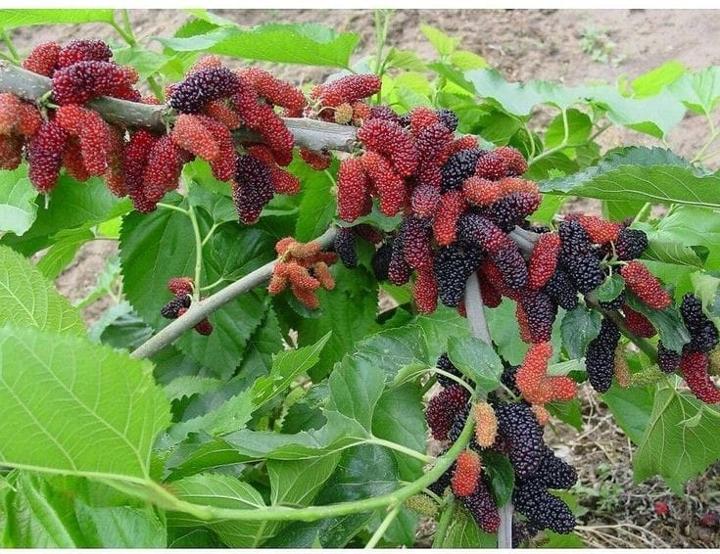
What Are The Different Types Of Areca Palm Plants?
1. Red Mulberry
Also known as the African mulberry tree or red mulberry tree, this tree is native to Africa and produces sweet red-pink fruits.
2. Black mulberry
Although the black mulberry or black mulberry tree is not native to Africa, it is also found in Africa and is another species sometimes associated with time.
3. Morus kagayamae
This is another mulberry tree native to Africa, especially in regions like Ethiopia.
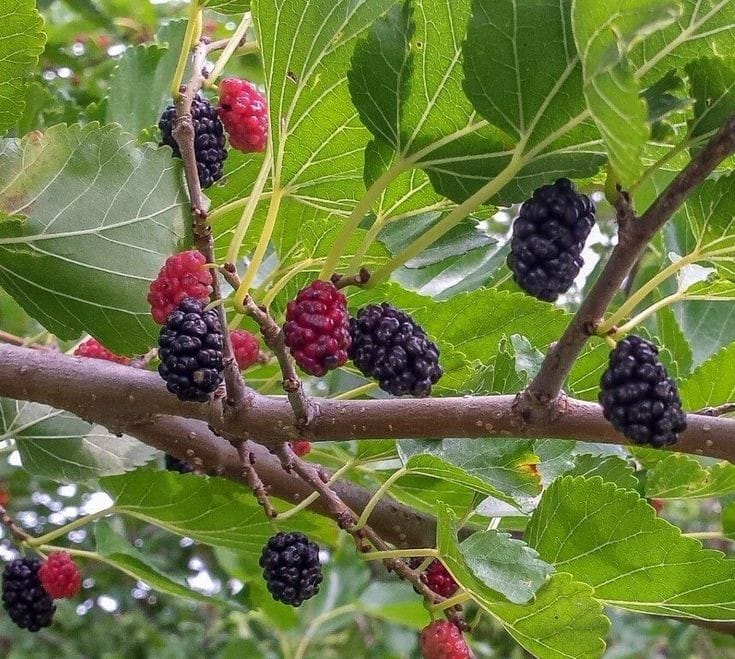
How to Care for African Mulberry Plant ?
1. Location
African mulberries, especially mulberries, thrive in certain conditions. Here are some tips for choosing the right location. Consider these factors when choosing a location to grow African mulberries to ensure good growth and fruit production. If you're not sure what's specific to your area, consulting a local horticulturist or agricultural extension service can give you suggestions.
2. Sunshine
African mulberries, prefer full sun to partial shade. Planting them in a sunny location is ideal for them to grow and bear fruit. Make sure they get at least 6-8 hours of direct sunlight a day for proper development. If you grow African mulberries in an area that receives strong sunlight, this will also help provide afternoon shade.
3. Soil
African mulberries, thrive in well-drained, fertile soils. Choose well-drained soil. Sandy loam or loam is generally suitable and will drain excess water from the roots. Amend the soil with organic matter such as compost or rotted manure. This helps improve soil structure, retain water and provide essential nutrients. African mulberries tend to be slightly sour . To provide the right environment for the African mulberry tree to grow and thrive, make sure the soil you choose is properly cultivated before planting.
4. Hydration
Adequate moisture is crucial to the health of African mulberries, such as mulberry trees. Here are some watering tips:
African mulberries love constant humidity. Water the tree regularly, especially during the dry season. Make sure the soil does not dry out without watering. Although they like moisture, it is important to avoid waterlogging as too wet soil can cause root rot. Make sure the soil is well-drained to prevent water from coming up through the roots. When watering, give enough water to reach the root zone. Deep water supports the development of a strong foundation. Apply a layer of mulch around the base of the tree to help retain soil moisture. Mulch also helps maintain soil temperature and reduce weeds. Adjust your watering schedule to your local climate. When it is hot and dry you need to water more often. Monitor soil moisture regularly and adjust irrigation schedule accordingly. It is important to get the balance right
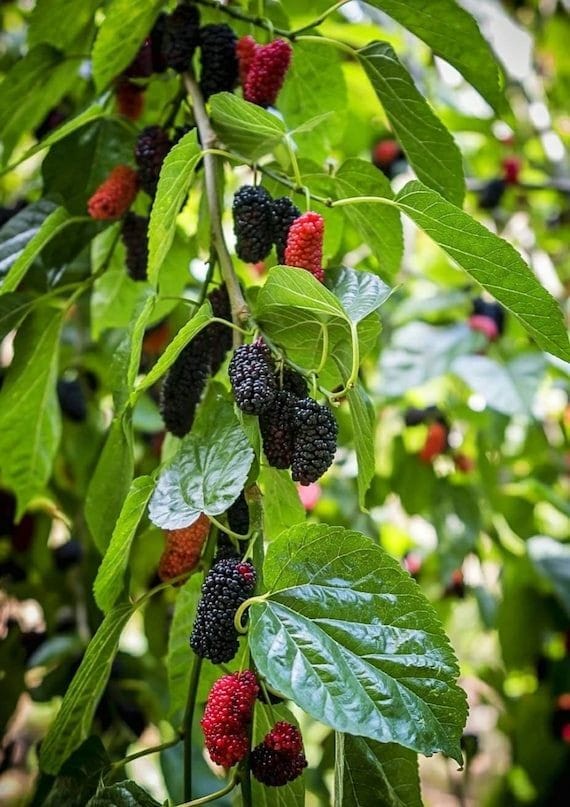
5. Nourishment
A balanced, productive environment is essential for the sustainability of African mulberries. Although specific requirements may vary depending on the soil, a general target with NPK balance (nitrogen, phosphorus, potassium) can be used. This is a general guide to NPK ratios and nutrients. Use a fertilizer with equal or slightly higher nitrogen (N) content to encourage leaf growth. A balanced NPK ratio (such as 10-10-10 or 14-14-14) would be appropriate. Fertilize in the spring when trees enter the growing season. Repeat the application throughout the growing season, usually early to mid-summer. Mix well-rotted compost or organic matter into the soil. This not only provides important nutrients but also improves soil structure.
6. Issues
Aphids, scale insects and caterpillars can attack African mulberries. Use insecticidal soap or neem oil to control pests. Natural predators like ladybugs can help. Diseases: Fungal diseases such as mildew or leaf spot can affect the tree. Proper spacing, good ventilation, and sterilization can help alleviate these problems. Overwatering or poor quality water can cause root rot. Make sure the water is good and water the tree regularly without letting the soil become waterlogged. Yellowing of leaves may indicate that a nutrient is not sufficient. Use a balanced fertilizer and, if possible, have soil tested to determine specific nutrients . African mulberries can be sensitive to frost.
What are the Benefits of African Mulberry Plants ?
African mulberry fruit is rich in vitamins, minerals and antioxidants and provides a rich nutritional value. In some traditional African cultures, various parts of the African Mulberry tree are used for their medicinal potential. This includes medical conditions such as malaria and digestive problems. The African mulberry has cultural significance in some communities and the tree is valued for its fruits and symbols. Trees attract wildlife and support biodiversity. Birds and insects can enjoy the trees and their fruits. As leaves falling from trees decompose, they provide organic matter to the soil, thus increasing the fertility of the soil. African Mulberry tree, which can be used for ornamental purposes, adds to its beauty with its attractive leaves and fruits.
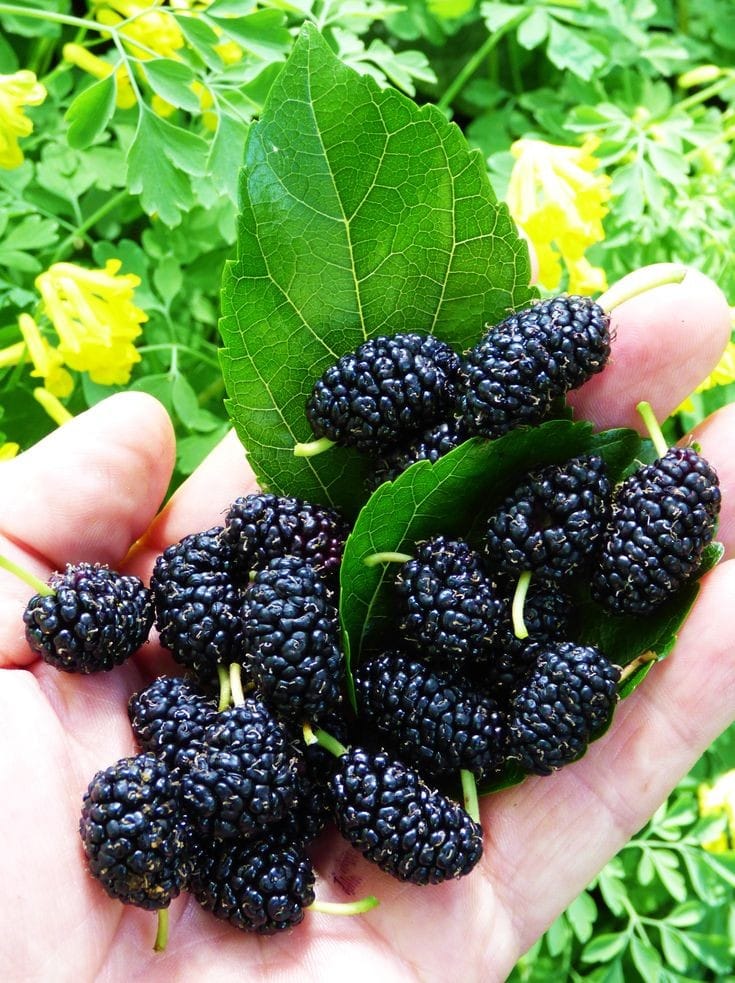
FAQs About Growing African Mulberry Plants ?
1. What is the Processing of African mulberries?
To care for your African mulberry tree , provide well-drained soil, regular watering and sunlight. Prune and cut away dead branches. Fertilize with a balanced fertilizer and keep pests away.
2. What are the benefit of African mulberry?
African mulberry, also known as noni , has many uses: Uses traditional medicine for health benefits, including immunity and disease prevention. Some people drink noni juice as a nutritional supplement, as it is believed to contain vitamins, minerals and antioxidants. Noni extract is used in skin cosmetics due to its antioxidant and moisturizing properties. In some cultures, noni is used in cooking, although its taste is strong and somewhat bitter. The bark of this plant produces strong fibers that are used to make rope and clothing. Noni fruit extract can be used as a biopesticide due to its antibacterial properties.
3. Can I grow African mulberry indoor?
Can be difficult due to their size and sunlight, but with proper care they can be attempted in a safe environment.
4. What are the Methods of Propagation of African Mulberry Trees?
African mulberry or noni can be served in many forms , such as , Propagation by seed , Line section , Air classification. Regardless of method used, provide warmth, humidity, and indirect light during exposure. Please be patient as it will take some time for the noni to cut the roots and grow into a healthy plant.
5. Where to buy African mulberry trees?
African Mulberry plants can be grown at local nurseries or garden centres. Check with those who specialize specifically in tropical or exotic plants. Many online herb stores offer many types of herbs, including noni. Make sure you choose a reputable site with good reviews. Botanical gardens often hold plant sales or events where you can purchase specialty plants, including African mulberry trees. Some local farmers or growers may grow noni. Check your local farm store or ask at the farm extension office. Plant events such as garden shows or plant fairs may feature vendors selling noni plants.
